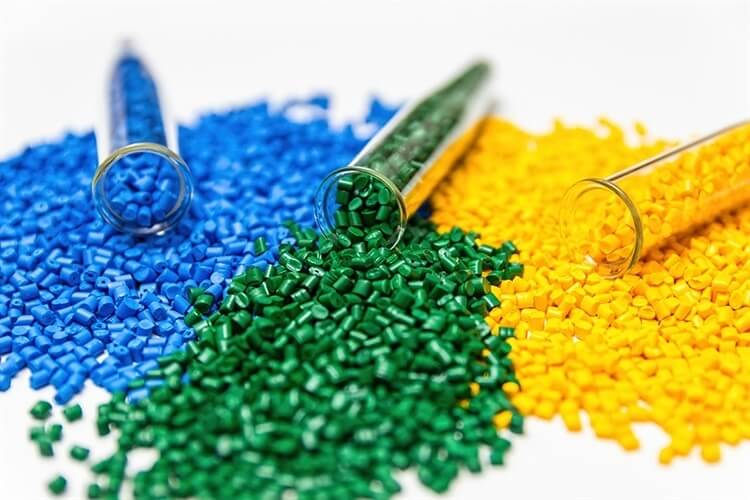Polymers in Healthcare: Improving Medical Devices and Treatments
Polymers in Healthcare: Improving Medical Devices and Treatments
Blog Article
Discovering the Varied Applications and Advantages of Polymers in Different Industries
Polymers, with their diverse variety of residential properties and functionalities, have actually ended up being important in numerous sectors, each enjoying distinct gain from their application. Polymers. From boosting safety and efficiency in the automotive sector to transforming clinical gadgets in the health care market, polymers play a critical function. Their eco-friendly nature is changing the landscape of sustainability practices. As we dive right into the depths of polymers in electronics, we uncover sophisticated innovations, while their architectural honesty transforms the world of building and construction and framework. The prevalent impact of polymers throughout markets is a testament to their flexibility and flexibility, shaping the future of countless sectors.
Automotive Industry Applications
Polymers play a crucial duty in enhancing the performance and longevity of various components within the automobile market. One noticeable usage of polymers in the automobile sector is in the manufacturing of light-weight parts.

Health Care Market Benefits
In numerous healthcare applications, the benefits of making use of polymers are extensively identified for their diverse series of useful homes. Polymers play a critical duty in the medical care sector as a result of their convenience, biocompatibility, and cost-effectiveness. Among the primary benefits of polymers in medical care is their capacity to be customized to certain demands, such as flexibility, longevity, and biodegradability, making them optimal for a wide variety of medical applications.
Polymer-based materials are thoroughly utilized in clinical gadgets, such as catheters, implants, prosthetics, and drug delivery systems, as a result of their biocompatibility and capacity to simulate natural cells. These products can decrease the risk of sensitive responses or beings rejected, improving individual safety and outcomes. In addition, polymers are light-weight, making them suitable for wearable clinical gadgets and guaranteeing patient convenience.
Furthermore, polymers allow the advancement of innovative treatment techniques, such as hydrogels for cells engineering and nanocomposites for targeted medicine delivery. Their ease of processing and sanitation makes them important for keeping high standards of hygiene in medical care settings. On the whole, the diverse benefits of polymers add substantially to innovations in medical innovation and patient care.
Ecological Benefits of Polymers

Furthermore, polymers can add to power financial savings as a result of their light-weight nature. In industries such as transportation, light-weight polymer products can aid lower fuel usage and greenhouse gas exhausts. Furthermore, polymers can make it possible for the growth of energy-efficient items such as insulation products that enhance power preservation in structures.
In addition, polymers play a crucial role in decreasing water contamination. this The usage of polymer-based purification systems can successfully eliminate contaminants and pollutants from wastewater, protecting water resources and ecosystems. Overall, the ecological advantages of polymers make them important assets in advertising sustainability and environmentally friendly practices across various sectors.
Polymers in Electronic Devices and Innovation
Thinking about the increasing need for ingenious and lasting remedies in contemporary industries, the assimilation of sophisticated polymer innovations in the world of electronics and technology has actually emerged as a crucial method for driving efficiency and efficiency. Polymers have revolutionized the electronic devices industry by making it possible for the production of lighter, extra versatile, and durable electronic tools. From smart devices to clinical devices, polymers play a crucial function in boosting product style and functionality.
One considerable benefit of polymers in electronics is their shielding buildings, which help secure delicate digital elements from ecological elements and electric interference. Furthermore, polymers are crucial in the growth of flexible displays, wearable technology, and printed electronics, supplying unlimited opportunities for developing smart and interconnected gadgets.
In addition, the use of polymers in electronic product packaging has actually resulted in improvements in miniaturization and thermal management, improving the overall efficiency and reliability of electronic systems. As technology remains to evolve, the versatility and versatility of polymers will top article unquestionably drive further innovation in the electronics market, forming the future of modern technology.
Duty of Polymers in Building and Infrastructure
The assimilation of innovative polymer products in construction and framework tasks has actually revolutionized the means frameworks are made and constructed in modern times. Polymers provide many benefits in the building sector because of their flexibility, longevity, and cost-effectiveness. One vital duty of polymers in building and construction is their use in coatings and sealants, offering protection versus ecological aspects such as wetness, UV radiation, and deterioration. Additionally, polymers are utilized in the production of light-weight and high-strength composite materials, enhancing the architectural stability of buildings while lowering total weight.
Moreover, polymers play a crucial duty in sustainable building and construction techniques by making it possible for the development of energy-efficient frameworks. Insulating products made from polymers help manage indoor temperatures, lowering the requirement for home heating my site and cooling systems and inevitably reducing power consumption. In addition, using polymer-based composites in facilities tasks such as bridges and roads boosts their longevity and minimizes upkeep costs. Overall, the unification of polymers in construction and facilities displays their considerable influence on modern engineering methods.
Conclusion
In verdict, polymers play a crucial role in numerous sectors such as vehicle, healthcare, environmental, electronic devices, and building. From improving gas performance in automobiles to improving medical tools, polymers provide numerous benefits.
Report this page